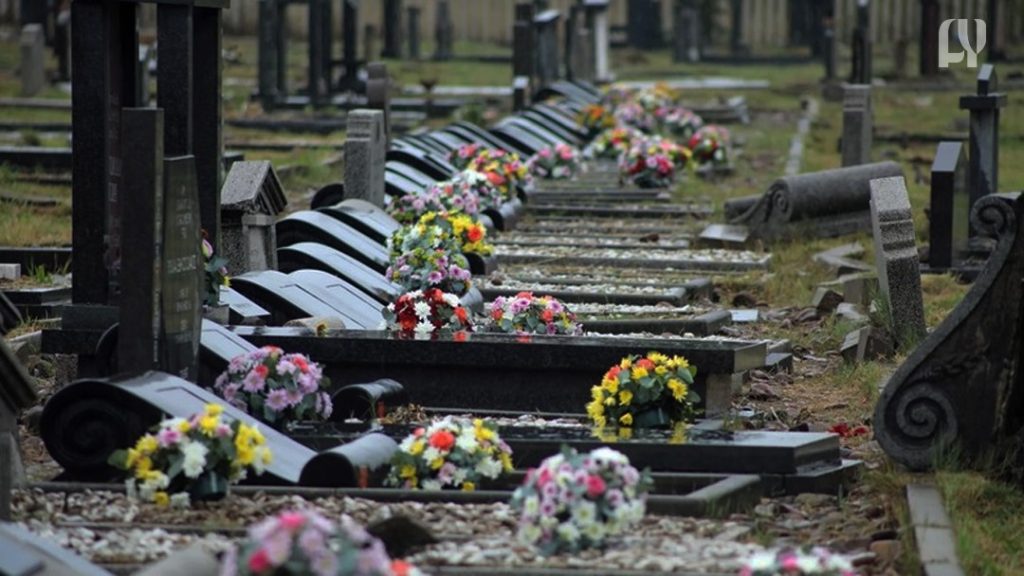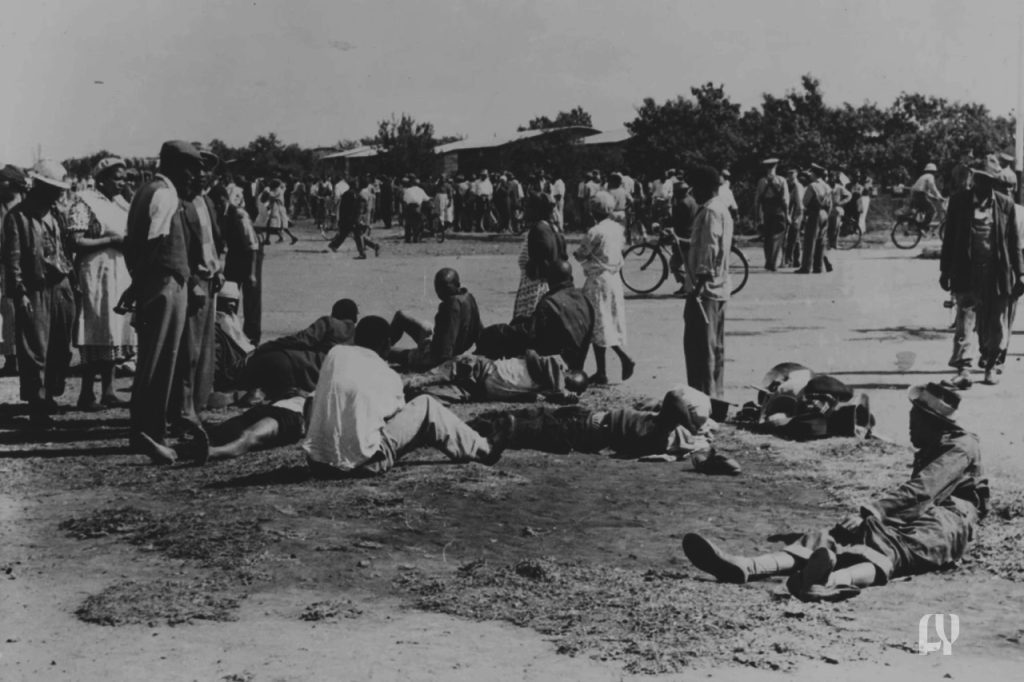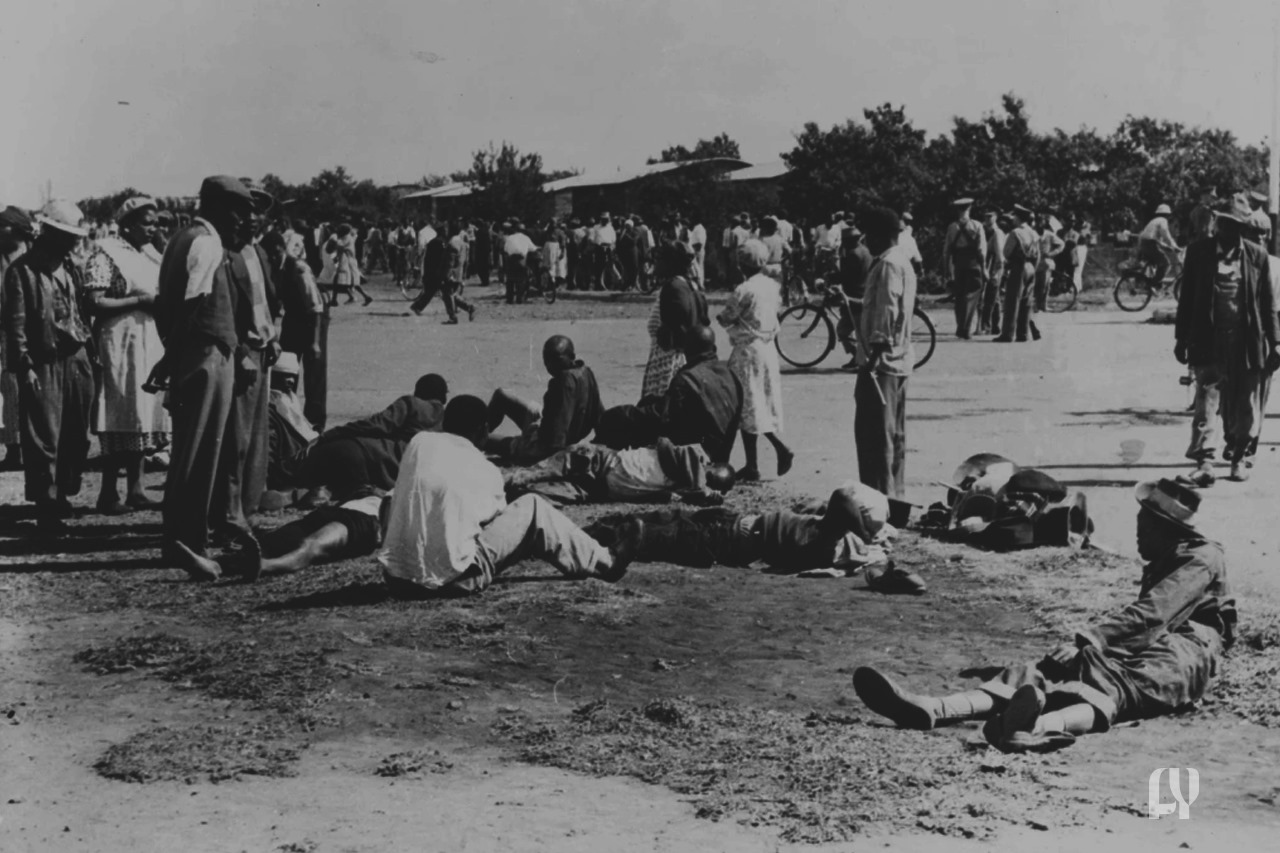Human Rights Day: Broken Promises and the Bloodstained Legacy of Sharpeville
Sixty-Five Years Later, Accountability Remains a Distant Dream for South Africa’s Forgotten Victims
The Ghosts of Sharpeville Still Cry for Justice
On March 21, 1960, apartheid police opened fire on a crowd of over 5,000 Black South Africans in Sharpeville. They murdered 69 and injured hundreds. They had gathered peacefully to protest the dehumanising pass laws, clutching nothing but their dignity and defiance. Today, Human Rights Day is meant to honour their sacrifice. Yet, 65 years later, the haunting question lingers: Who is accountable for the broken promises? These promises still shackle millions to poverty. Violence and despair continue to affect them.
- The Weight of Broken Promises: A Nation in Ruins
- Political Rhetoric and Broken Promises: The TRC’s Unfinished Business
- Private Sector Complicity: Profiting From Pain
- NGOs and the Fight for Survival: Who Will Fund the Future?
- A Global Stage for Broken Promises: The G20’s Empty Spotlight
- Healing the Wounds of Broken Promises: A Call to Arms
- FAQs: Sharpeville Massacre Legacy, Broken Promises in South Africa
The Sharpeville massacre was not merely a tragedy—it was a declaration of war on Black humanity. As EFF leader Julius Malema declared this week, “Sharpeville’s bloodshed was a battle cry against oppression. Today’s leaders have turned their backs on that fight.” His words cut deep in a nation where the government’s failures mirror the systemic violence of the past.
The Weight of Broken Promises: A Nation in Ruins
South Africa’s Constitution, hailed as one of the world’s most progressive, guarantees rights to water, healthcare, education, and safety. For the mother in Gqeberha, these rights are cruel illusions. She watches raw sewage flood her child’s daycare. For the student in Limpopo, these rights are also cruel illusions. They study by candlelight amid endless blackouts. Deputy President Paul Mashatile’s recent Human Rights Day speech acknowledged that significant work remains to address inequality. His platitudes ring hollow to communities that are drowning in neglect.

The 2025 budget pledges R1.03 trillion for infrastructure, but corruption and incompetence have turned potholes into sinkholes and pipelines into rivers of filth. In Johannesburg, President Cyril Ramaphosa lamented the city’s “unpleasing” decay ahead of the G20 Summit. Residents mock the irony. How can a leader showcase a nation that can’t even keep its lights on?
Political Rhetoric and Broken Promises: The TRC’s Unfinished Business
This year marks 30 years since the establishment of the Truth and Reconciliation Commission (TRC). It is a cornerstone of South Africa’s transition to democracy. Mashatile praised its “healing legacy” during his Human Rights Day address. Activists retorted: What healing exists for those still waiting for reparations? The TRC’s promise of restorative justice remains unfulfilled, with thousands of apartheid-era victims languishing in poverty, their trauma ignored.
Future generations will ask how we allowed inequality to fester.
Meanwhile, the ANC government’s own failures mirror the apartheid regime’s brutality. Police brutality continues to claim lives—from Marikana to recent protests over water shortages. “Our leaders have become the oppressors they once fought,” spat a Sharpeville elder during this week’s commemoration. Malema’s provocative claim that Sharpeville was “a declaration of war” resonates in townships. In these areas, service delivery protests erupt daily. They are met with rubber bullets and repression.
Private Sector Complicity: Profiting From Pain
The Constitution binds businesses to uphold human rights, yet many thrive on state collapse. Private security firms, solar suppliers, and water tanker companies profit wildly as municipalities crumble. In Nelson Mandela Bay, businesses “adopt” substations to bypass Eskom’s failures—a Band-Aid on a bullet wound. “If you profit from our suffering, you’re part of the problem,” argues Thandi Mokoena, a community organiser in Khayelitsha.
Corporations dump toxic waste in rivers, exploit workers, and dodge taxes, robbing billions meant for public services. The Nelson Mandela Bay Business Chamber’s pothole repairs are commendable, but why must businesses clean a government’s mess? The answer lies in a toxic cycle of greed: broken systems breed broken promises.
NGOs and the Fight for Survival: Who Will Fund the Future?
When the state fails, NGOs step in. Groups like the Socio-Economic Rights Institute and Section 27 wage legal battles for water, healthcare, and housing. But their lifeline is fraying. The US’s $440 million aid cut threatens HIV programmes, legal advocacy, and grassroots activism. “Without funding, we can’t fight,” says Sipho Dlamini of Corruption Watch. “The world watches as South Africa’s rights are auctioned off.”
Courts stay a last resort for the desperate. In 2024, the Constitutional Court ordered the government to fix dilapidated schools, yet children still kneel in mud classrooms. Litigation can’t rebuild a nation—only accountability can.
A Global Stage for Broken Promises: The G20’s Empty Spotlight
In November, South Africa will host the G20 Summit, a chance to showcase “African leadership.” But Ramaphosa’s glossy narrative clashes with the stench of rotting infrastructure. Foreign dignitaries will drive past collapsed bridges and townships simmering with rage. The world will see a nation celebrating human rights while denying them to its people.
Sharpeville’s bloodshed was a battle cry against oppression. Today’s leaders have turned their backs on that fight.
Healing the Wounds of Broken Promises: A Call to Arms
Justice Jody Kollapen, a Constitutional Court stalwart, warns: “Future generations will ask how we allowed inequality to fester.” The answer lies in collective action. Citizens must demand accountability—not just from politicians but from corporations, NGOs, and themselves.

Human Rights Day can’t be a performative spectacle. Sharpeville’s victims did not die for hollow speeches. They died for freedom, dignity, and justice—rights that stay broken promises in the hands of today’s leaders. Every child must drink clean water. They must learn in a safe school and walk free from fear. Until then, the blood of 1960 will stain South Africa’s conscience.
FAQs: Sharpeville Massacre Legacy, Broken Promises in South Africa
Why is Human Rights Day connected to Sharpeville?
Human Rights Day commemorates the Sharpeville massacre of March 21, 1960, when apartheid police murdered 69 peaceful protesters. It is a reminder of the blood spilt for freedom. Yet today’s leaders have betrayed that sacrifice. They offer empty promises and systemic neglect.
What is the theme of Human Rights Day in South Africa 2025?
The 2025 theme, “Broken Promises: Accountability for a Just Future,” emphasises the failure to deliver basic rights. These rights include water, electricity, and safety. It is a damning indictment of a government that celebrates rights on paper while denying them in practice.
How is Sharpeville’s legacy still relevant today?
Sharpeville’s legacy is a mirror reflecting South Africa’s ongoing struggle for equality and justice. The same systemic violence and neglect that defined apartheid persist, with millions still shackled by poverty, corruption, and broken systems.
Who is accountable for South Africa’s human rights failures?
Accountability lies with the government, private sector, and citizens. Politicians have neglected to deliver services, corporations profit from collapse, and citizens must demand change. The blood of Sharpeville demands nothing less.
What can be done to honour Sharpeville’s victims?
Honouring Sharpeville means fighting for the rights they died for: equality, dignity, and justice. It means holding leaders accountable, supporting NGOs, and refusing to accept broken promises as the status quo. Their blood cries out for action, not empty words.




